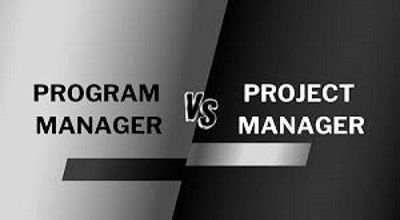Program Manager vs. Project Manager
The roles of Program Manager vs. Project Manager are crucial in the management hierarchy of organizations, especially in sectors like IT, construction, and manufacturing. While both roles share some similarities, they have distinct responsibilities and scopes of work. Here’s a comparison to highlight the differences:
Program Manager
- Scope and Focus: Program Managers oversee a program, which is a collection of related projects and ongoing operations. That are managed in a coordinated manner to achieve strategic objectives and benefits. Their focus is broader and more strategic.
- Responsibilities: They are responsible for aligning program objectives with the strategic goals of the organization. Managing stakeholders and ensuring the realization of benefits from the program’s components.
- Decision-making: Program Managers make decisions at a strategic level, often involving resource allocation. Program governance, and prioritization of projects within the program.
- Risk and Issue Management: They deal with high-level risks and issues that may affect the program’s overall success, focusing on mitigating strategic risks.
- Stakeholder Management: Program Managers interact with higher-level stakeholders. Including executives and department heads, to ensure the program aligns with the organization’s strategic direction.
Project Manager
- Scope and Focus: Project Managers oversee individual projects with specific objectives, timelines, and deliverables. Their focus is more tactical, dealing with the day-to-day management of tasks and team members.
- Responsibilities: They are responsible for planning, executing, and closing projects. This includes managing project schedules, budgets, resources, and quality to achieve the specific goals of the project.
- Decision-making: Project Managers make decisions at the project level, focusing on operational issues, task assignments, and resolving project-specific problems.
- Risk and Issue Management: They handle project-level risks and issues, focusing on operational and tactical solutions to keep the project on track.
- Stakeholder Management: Project Managers interact mainly with project stakeholders. Including team members, suppliers, and clients, to ensure project requirements are met and communicated effectively.
Key Differences in Summary
- Strategic vs. Tactical: Program Managers focus on strategic alignment and benefits realization across multiple projects. While Project Managers concentrate on the tactical execution of individual projects.
- Scope of Work: Program Managers have a broader scope, managing several related projects to achieve program goals. Whereas Project Managers focus on achieving specific objectives within the confines of a single project.
- Stakeholder Engagement: Program Managers deal with higher-level stakeholders and strategic issues. While Project Managers engage with stakeholders directly related to the project for operational outcomes.
Understanding these differences is crucial for organizations to effectively structure their management teams. Ensure both strategic goals and project-specific objectives are achieved.





